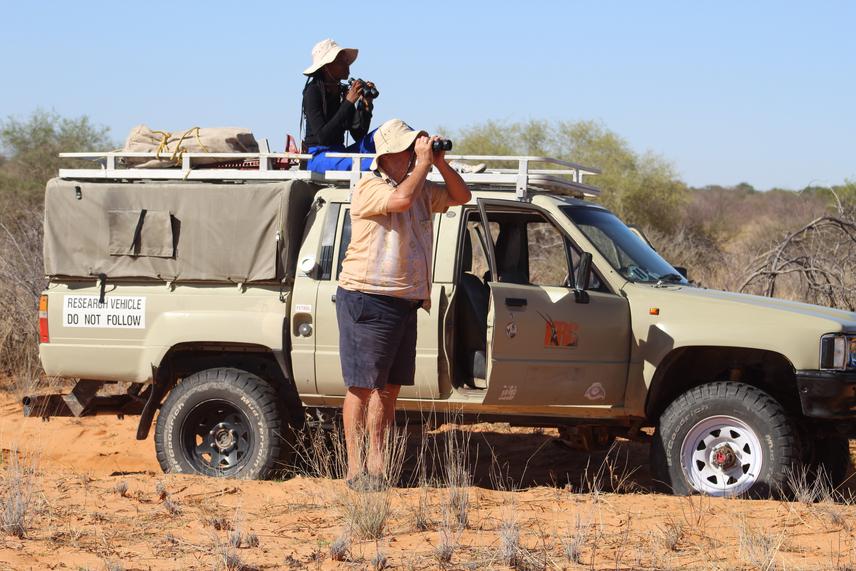Rochelle Katlego Mphetlhe
Other projects
Raptors populations are declining across the globe, with around 18% of the world’s raptors currently threatened with extinction, old world vultures are particularly at risk. However, within Africa, there are very few systematic national monitoring programmes for any wildlife, including raptors. In this study, we complete raptor re-surveys in southern Botswana since the prior study was only centered in the northern part of the country. Combining these data permits a complete estimation of population changes of raptors for the whole country for at least 29 raptor species, including several species classified as Critically Endangered (e.g., African White-backed Vulture, Hooded Vulture & White-headed Vulture). Herremans & Herremans-Tonnoeyr (2000) conducted extensive raptor road transects throughout Botswana in the early 1990s. Garbett et al. (2018) partially repeated some of these surveys, but only in northern Botswana, which revealed severe declines for many raptor species.

My project aims to quantify changes in the abundance of the main raptor species in Southern Botswana, and to combine these with the northern transects, to derive a country wide estimate of the abundance change for all species of regularly occurring raptors in Botswana, with particular focus on vultures as they are the most critically endangered of all raptor species in the country. It is important that we can quantify the levels of change and identify potential drivers of decline, to protect important species from extinction. The results from this study will be fed directly back into the community works that Raptors Botswana engages with, and stakeholders including the Botswana government, the Department of Wildlife and National Parks (DWNP) as they are at the forefront in encouraging wildlife conservation and protection of endangered species and fighting wildlife poisoning which is one of the two causes of declines in raptor populations in the country. The project will educate communities and increase awareness about issues concerning endangered raptor species and the conflict between them and people, their roles and importance in the ecosystem. The experience, skills, and qualifications I will gain from this study, I'll become a leader in the conservation field, and an expert in raptor population ecology which will enable me to engage more stakeholders and empower more people to take interest in wildlife conservation and increase awareness and knowledge at community and stakeholder/decision makers level about endangered wildlife species.